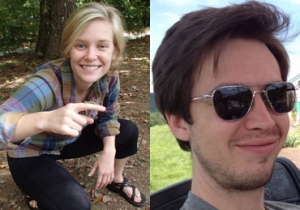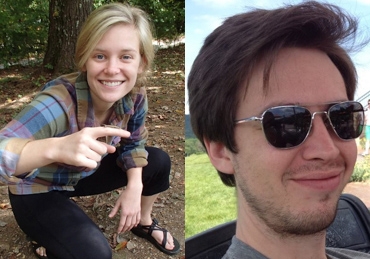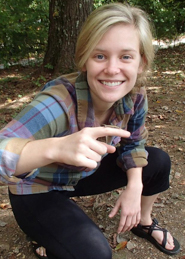
Cameron Houser
How did you become interested in biology?
As a kid, science was always one of my favorite subjects. Initially, I thought I wanted to become a pediatrician and work with Doctors without Borders. In college, I found myself gravitating more towards coursework in ecology and evolutionary biology. At first, it was difficult to imagine myself as a scientist. However, after a series of experiences including internships, undergraduate research, and a semester spent studying at the Highlands Biological Station, I felt comfortable in my career choice. I was lucky to have many wonderful mentors who encouraged me to stay in science and to develop my own research interests.
Why did you pick ASU for your graduate degree?
After college, I took a year off before deciding whether or not I wanted to go to graduate school. During that year, I joined a research group from the University of Maryland working with southern Appalachian salamanders. One of the PhD students had completed her master's in a small, master's-only program at James Madison University. Like me, she had initially been unsure if graduate school was right for her. She loved her program and felt like she would not have had the same experience at a larger university. She recommended that I look into smaller programs primarily because smaller programs often provide better one-on-one mentoring and advising opportunities. I took her advice and looked into the Biology program here at Appalachian. After my initial visit, I knew App State was a good fit for me.
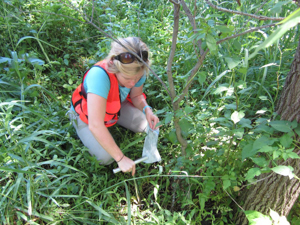 What is your thesis research focused on?
What is your thesis research focused on?
My research combines aspects of genetics, biogeochemistry, and ecosystem ecology to answer questions about how an intra-continentally invasive, nitrogen-fixing tree, black locust (Robinia pseudoacacia) impacts ecosystem function. Specifically, I am interested in how inputs of genetically-mediated leaf chemistries can alter belowground processes.
What are your plans after you finish your Master's degree here?
When I first started graduate school, I had plans to incorporate a remote sensing component to my project. Although I ended up going in a different direction, the remote sensing-based ideas have stuck in the back of my mind. My interest in remote sensing solidified after taking a digital image processing class for the GIScience certificate program. So much so that I joined our campus student club, the Appalachian Geospatial Club. My main interest is ecological applications of image spectrometry and hyperspectral remote sensing. Specifically, I am interested in how hyperspectral remote sensing can be used to detect changes in canopy chemistries and how these differences translate to differences in belowground processes and ecosystem function. In the fall, I will begin a Remote Sensing PhD program at Virginia Tech.
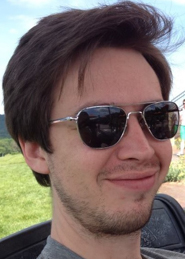 Bryan Zorn
Bryan Zorn
How did you become interested in biology?
My interest in biology was apparent early on in a very classical sense. At a young age I was always checking out the variation of leaves, beetles, or anything else I could get my hands on. So you could say it came naturally!
Why did you pick ASU for your graduate degree?
During my undergraduate experience at ASU, I had started working in Dr. Suzanna Brauer's lab with microbes and environmental sequencing. When it came time to leave, I knew I wanted to earn a graduate level degree. Since there was still more work to be done on the project, it made sense to expand it into a formal thesis, and continue it at Appalachian.
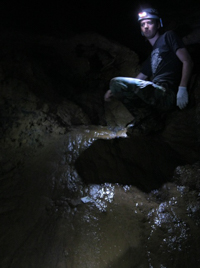 What is your thesis research focused on?
What is your thesis research focused on?
My research is focused on using microbiological, computational, and molecular techniques to assess fungal communities associated with manganese oxide deposits in cave systems. A number of fungi have been observed to generate manganese oxides, which are very potent, environmentally relevant minerals. Culturing, quantifying, and using ultra-deep next-generation sequencing for identification can provide insight into this unique biome.
What are your plans after you finish your Master's degree here?
Given the assortment of experiences I've gained at Appalachian over the years, I'm planning on getting to work for a while! I'd like to gain more industry experience to give me a better focus of what I'd like to study for a PhD.
